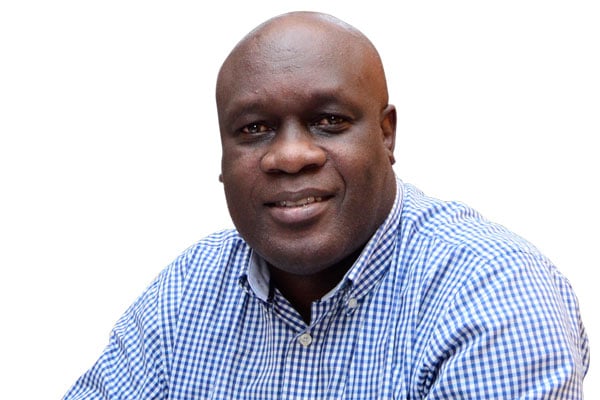Prime
What can media do about fake news, reduced trust?

Author: Odoobo C. Bichachi is the Nation Media Group (NMG)-Uganda public editor. PHOTO/FILE.
What you need to know:
- I take the conversation from the fireside and bring it to you in this column with a summary of my take on some of the issues that came up on rebuilding trust and viability of the media.
Last Friday, I had the pleasure and privilege to join a fireside conversation at Media Challenge Initiative (MCI) at their Kabalagala home, Kampala. The conversation, dubbed Media Viability Talks, focused on how media literacy can return public trust and support to a hugely challenged journalism landscape.
While I have known about MCI for many years, this was my first intimate interaction with the organisation. Besides the great setting of the artificial fireside and rings of participants around it, I was blown away by their approach to journalism/media training and mentorship that draws on the energy and creativity of the youth to infuse new purpose to an old industry that many sometimes want to write off.
I liked especially that MCI is confronting the two big problems in the industry – one; fake news in all its manifestations that include misinformation, mal-information and disinformation, and two; dwindling public trust in the media.
To this end, therefore, the young apprentices at MCI are building a fact-checking application [app] that will help audiences sieve the truth from what looks like the truth. Fake news has become the bane of the world today to the extent that while we should be a more informed society compared to the pre-internet era, we are perhaps more misinformed and manipulated than ever before. It is wonderful therefore that Ugandan youth are attacking fake news from our perspective where the algorithm will be nuanced to pick out the local fake news, especially in social media places where the young people spend a lot of their time scrolling.
To an old horse like me, however, the focus on media literacy sounds really good. Media literacy is not just the ability to consume news. It is the ability to interrogate that news and extract meaning which in turn influences personal and civic actions, as well as creates affinity for the media.
I take the conversation from the fireside and bring it to you in this column with a summary of my take on some of the issues that came up on rebuilding trust and viability of the media:
●How can we restore the diminishing and already eroded public trust in the media?
-We must go back to embrace the Professional Code of Ethics
-Drive accuracy and responsible reporting (minimising sensationalism)
-Make corrections when wrong, promptly – not grudgingly or engaging in whataboutism
-Respect the privacy of individuals unless it is in absolute public interest
-Pursue a public agenda when reporting
-Respect audiences in how you report and what you expose to them
-Shun merchant journalism or journalism for hire or brown envelope journalism
●How can we work together to create a media-literate audience that wants and supports quality journalism?
-Media needs to create moments of engagement with its audiences, not just feeding them news
-Journalists should climb down the high horses and talk to audiences, not talk at them
-Learn to take feedback in good stride and respond to queries, not be dismissive
-Share with audiences the challenges, benefits and darkness that may come without media
●How can we collectively strengthen our audiences’ resilience in the face of misinformation and deception today?
-We must tighten our gate-keeping by not falling for fake news and re-transmitting it
-Media should consistently sensitise their audiences on how to spot fake news
-Journalists should behave as professionals even on personal social media handles, not as just another fellow downtown with a smart phone
●What audience engagement tactics can we collectively use to influence media consumer behaviour while also attracting audiences to support and campaign for press freedom and rights?
-Media provides a lot of space to the public to discuss everything under the sun, but it has no space to discuss journalism and industry challenges/initiatives with audiences.
-We need to sell ourselves, our value and take feedback from consumers on our faults
-We need – by what and how we report – the public to see us not as a nuisance but as a useful part of the community
-We need to be humble and respectful of our audiences. There are smarter people out there than there are in the newsrooms
Send your feedback/complaints to [email protected] or
call/text on +256 776 500725.



